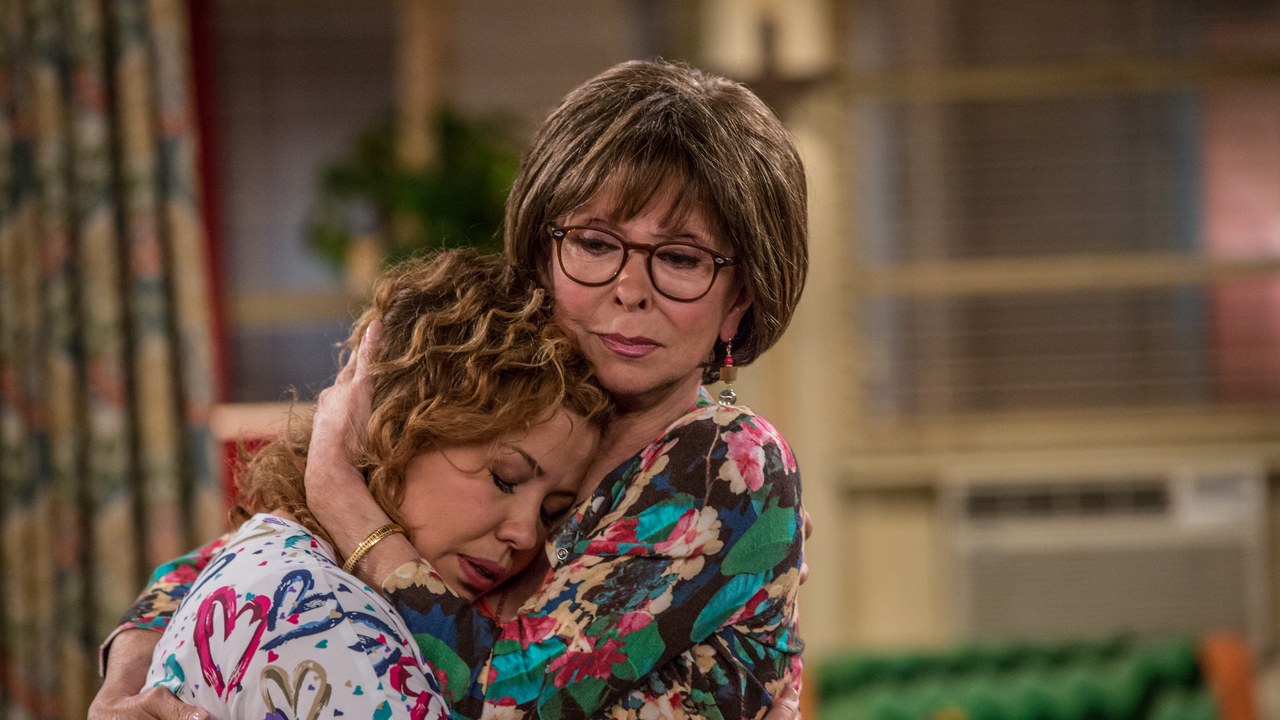Why Netflix's One Day at a Time Mattered To Latinxs Like Me

Sitcoms are not a genre of TV I grew up with. Instead, I had telenovelas—dramatic ones, like La Usurpadora, Rebelde, and Pasión de Gavilanes. But as much as I was obsessed with Rebelde’s Elite Way School and its rich, privileged Mexican characters, the show never made me say, “Wow, that’s so me.”
It’s not like I gave it a lot of thought. No one I knew did. We were OK with Televisa—the premiere Mexican TV network—rolling out telenovelas with mostly white characters, who lived eccentric lives and encountered way too many problems for the amount of money they had. I never questioned why people like me and my family weren’t represented on TV.
Then I watched One Day at a Time, Netflix’s just-canceled sitcom. Based on the 1970s version written by Norman Lear, the show portrayed a Cuban-American family living in Los Angeles. And from the moment Lydia Riera (Rita Moreno) first slammed open the set of curtains she called “a door with no self-respect,” I was captivated by the real-life accuracy of the story unfolding before me.
I, too, have a mother who’s always dressed to the nines—even inside her house—and cousins who are the odd ones in the family for being “too feminist” for our tias’ generation, like Elena (Isabella Gómez). I have a complicated relationship with my father, like Elena and Alex (Marcel Ruiz) and was raised by a single mother, like Penelope (Justina Machado). I have a grandmother who refused to take off her wedding ring or marry again after my grandfather’s death, and a army of tias, primas, and abuelas who have carried our family for generations. The show’s vivid characters portrayed a reality I never realized was worthy of television.
This show both celebrated and questioned our traditions, like when Elena refused to have a quinceañera for its “misogynist” symbolism. It also showed that an elderly woman can be sensual and stylish, and it portrayed a vulnerable single mom who struggled with her mental health issues in a community that treats them as taboo. The show highlighted the ways Latinxs are suffering from Donald Trump’s hate speech, even at a young age like 14-year-old Alex. But it also raised important questions about identity and love for this country that many first-generation Americans face.
One Day at a Time has been in danger of cancellation many times before, and every time I would rally on Twitter with so many others.
It always seemed like Netflix could hear our cries for representation—until Thursday. “We’ve made the very difficult decision not to renew One Day at a Time for a fourth season,” the streaming service tweeted. “The choice did not come easily—we spent several weeks trying to find a way to make another season work but in the end simply not enough people watched to justify another season.” After thanking the cast and crew, Netflix then tweeted, “And to anyone who felt seen or represented—possibly for the first time—by ODAAT, please don’t take this as an indication your story is not important. The outpouring of love for this show is a firm reminder to us that we must continue finding ways to tell these stories.”
When I saw this, I thought of the telenovelas I grew up with. I tried to imagine a crowd as passionate and dedicated to even one of them as the people of my Twitter feed were about saving One Day at a Time. There was no comparison.
The truth is, many of us still need to learn that our stories matter. That’s what One Day at a Time did so well. It showed an alternate reality, in which Latinxs are not drug lords or telenovela villains. It showed we have complex lives and beautiful traditions. It showed a community that’s longing to be represented. I know this is not the end of it.


